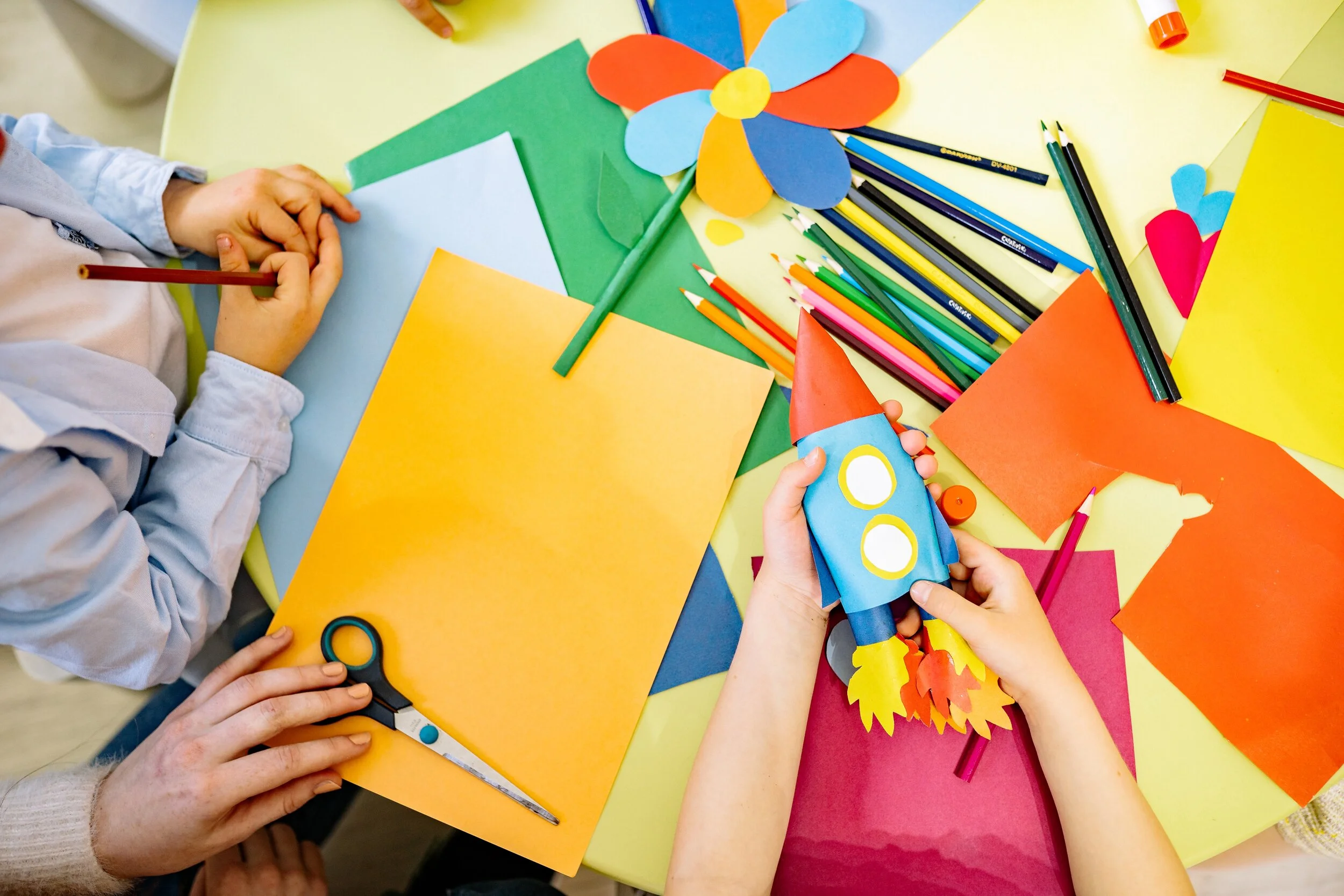As an adult, when you are not feeling as if you are performing at an optimal level or you stop trying hard to be the best version of yourself, it is possible to express the situations and/or emotions that are negatively impacting you. Although it may not always be easy, adults have the ability to recognize and communicate any emotional or mental health problems they may be going through. On the other hand, children do not have that capacity. While some children may simply be too young to be able to reveal their feelings, there are several reasons why emotional disclosure may not be occurring. Some children may struggle to verbally express themselves, some may be introverted, and some may feel too vulnerable sharing their troubles. While adults express themselves by talking, children speak the language of play. Therefore, play therapy can be extremely helpful in assisting in the exploration of your child’s worries since it is an activity that feels comfortable to them.
Child play therapy is a type of therapy tailored for children. This form of child counseling uses play to investigate children’s emotional and mental health problems. Children survey their feelings through play and share them with their therapist. Play therapy counseling is an effective approach to kid therapy that enhances children’s standard communication and learning processes. Child play therapy gives kids the opportunity to explore their emotions while creating solutions to their problems. Many children are frightened by the typical hospital or clinical environment or unwilling to express their emotions in this type of setting, so play therapy is the perfect resolution!
Anchor Therapy is a counseling center in Hoboken, NJ with psychotherapists specialized in helping children, teens, adults, and couples with anxiety, depression, relationship issues, trauma, and life transitions. Anchor Therapy is accepting new clients and is now providing in-person sessions and telehealth (video/phone) sessions to residents of New Jersey and New York.
Kid play therapy is much more than a glorified play time
Toys can become symbols which hold a deep meaning in regards to a child’s mental welfare. A licensed mental health professional will be able to examine and identify your child’s worries. When your kid has permission to play with whatever toys they choose, they may choose objects that reflect their emotions. In other circumstances, they may draw a picture that indicates their obstacles. For example, a child who is experiencing family issues may draw a picture of a happy family. Children may gravitate towards different types of toys or showcase a wide range of emotions throughout the duration of the sessions.
Children may use creative play therapy counseling:
To heal
To solve their problems
As a coping mechanism
To act out nerves and/or concerns
Additionally, your child’s therapist helps them uncover emotions and manage trauma. Kids will learn coping mechanisms and how to change improper behavior through playing. It is important to remember that consistency is key when it comes to searching for and picking a therapist. The longer your child spends working with a specific therapist, the more comfortable they will become with that individual. How comfortable a child is with someone impacts the likelihood of them disclosing their feelings.
Play therapy is typically reserved for children between 3 and 12 years of age.
During play, children are free to express their deepest emotions. During this time of fun, kids may even feel more comfortable to outwardly showcase their feelings since there is no pressure present. In this setting, kids are taking their time and choosing how they communicate. Once initial observations are made from your therapist, your next steps will be outlined in a treatment plan. Your therapist will most likely pay close attention to how your child acts when they are with you versus when you both are separated during the play therapy session. As your sessions advance, treatment goals may be reevaluated. Eventually, your therapist may decide that it is needed to bring another party into the play therapy sessions. For instance, a parent or sibling may be asked to play with the child. This helps in crafting solutions, improves the family unit, and encourages healing. Since each child has their own unique challenges, sessions will vary from kid-to-kid, including the length and amount of sessions.
Kid play therapy is helpful for many children, but it may be especially beneficial if your child is facing one of the following:
Chronic illness
Upcoming operations
Learning disabilities
Traumatic events
Eating disorder
Potty training problems
Behavioral problems at school
Family issues (e.g., divorce, death of a loved one, etc.)
Domestic violence
Abuse
Neglect
Anxiety
Depression
Natural disasters
Attention Deficit Hyperactivity Disorder (ADHD)
Autism Spectrum Disorder (ASD)
Reactive Attachment Disorder (RAD)
Child centered play therapy has two main approaches:
In the first approach, your kid’s therapist will take a direct lead by showing your child exactly which games and toys will be used throughout the length of the session. This path is presented with a particular objective designated.
The second approach is less organized, known as the non-directive play therapy method. In this type of session, the child picks what toys and games they want to play with while experiencing no directions or interferences. The therapist will continue to monitor the session and interact when they see fit.
Child play therapy can allow your child to:
Relieve their anxiety
Develop their social skills
Create a stronger family unit
Build healthy coping mechanisms
Boost their self-respect
Solve their problems
Take responsibility for their actions
Increase their compassion and consideration towards others
Express their emotions
Overall, play based therapy creates a space for children to feel comfortable enough to express their truest and deepest emotions. Children are offered countless toys and supplies to reveal their feelings and outlooks. In theraplay, kids have permission to survey their setting and take part in activities that generate genuine enthusiasm. This allows your child’s therapy sessions to progress naturally according to their wishes instead of your therapist’s fixed ideas and goals.
Anchor Therapy offers play therapy in Hoboken, New Jersey. We have registered play therapists who have extensive training in play therapy and cognitive behavioral therapy (CBT) for children. At Anchor Therapy, we start treating children as young as 6 years of age. If your child is less than 6 years old, we believe it is best for the parent(s) to be involved. Regardless of age, family sessions and parenting sessions can be beneficial to your child’s emotional well-being. Read more about Anchor Therapy’s child counseling services.
Victoria Scala
is the Social Media Manager at Anchor Therapy in Hoboken, New Jersey. She is currently an undergraduate student at the Honors College of Rutgers University-Newark, looking to study Clinical Mental Health Counseling at the graduate level. As a Social Media Manager at Anchor Therapy, Victoria is committed to producing content for and managing the office’s social media presence and blog.









